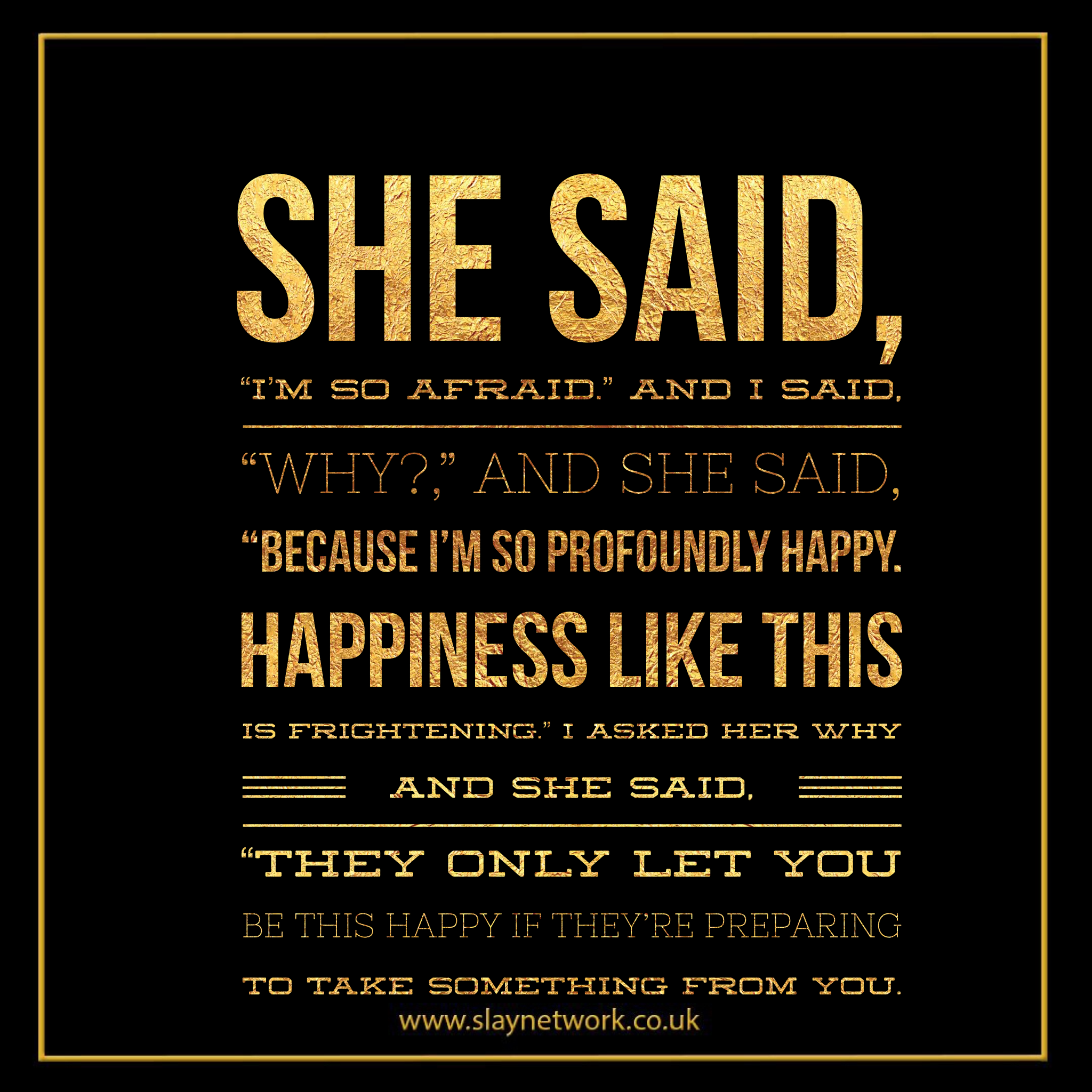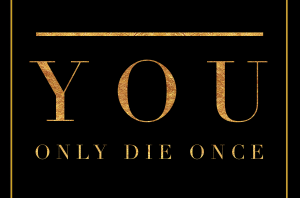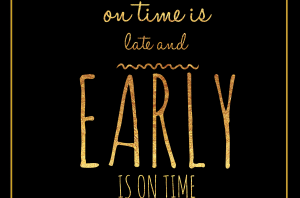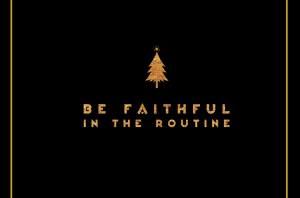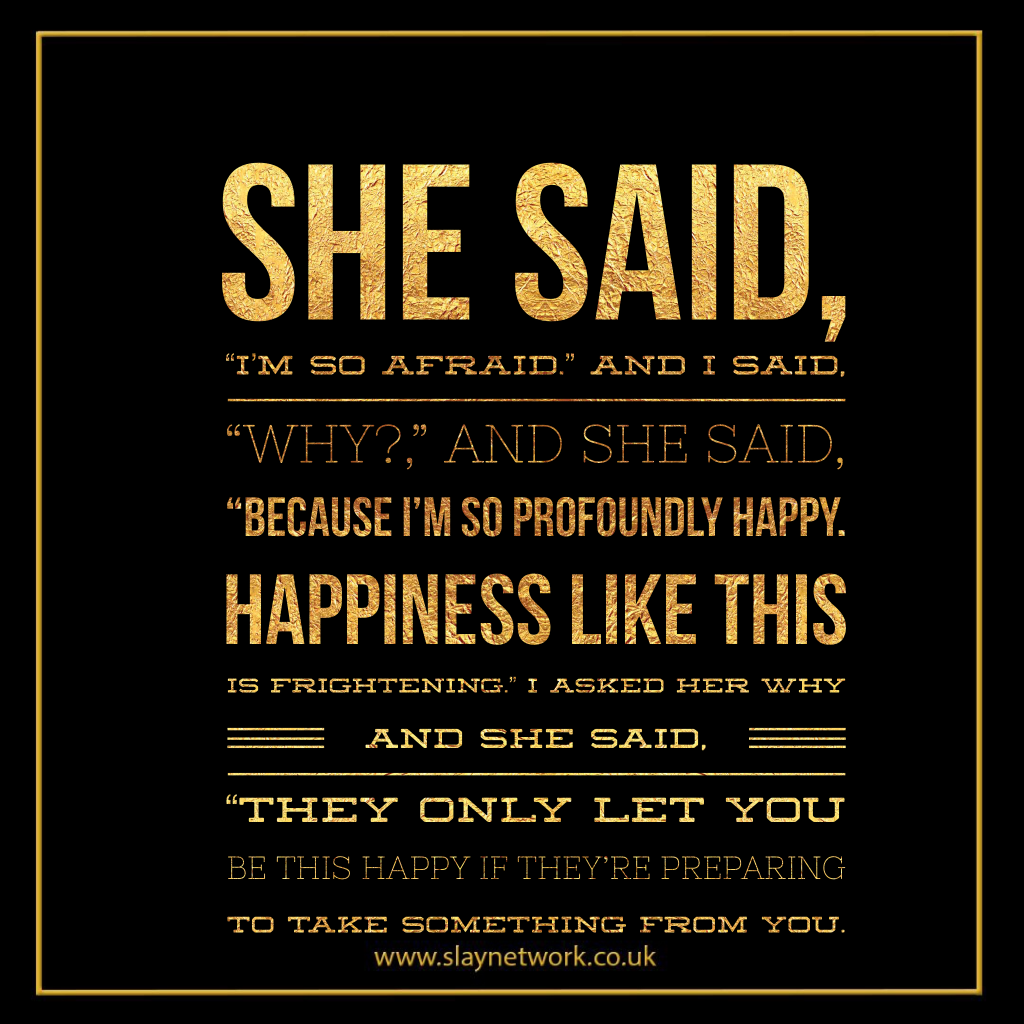
Some people are afraid to be happy. It isn’t that they don’t want to be happy or that they enjoy being unhappy. They have come to feel that being happy will come at a price or will be followed by calamity or at least ill fortune. In some cases, this dynamic can reflect superstitious thinking. For example, some might believe that an unknown karma-like force ensures that good luck produces misfortune or that happiness must be followed by sorrow to maintain a necessary balance of complementary energies. Thinking of happiness as a harbinger of misfortune would surely make joy a frightening prospect.
One might wonder why such a belief would not also expect that misfortune would lead to good fortune and sorrow yield joy. But superstitious beliefs are not based on logical analysis or empirical evidence. Such asymmetry in reasoning can result from a marked discrepancy in salience between good luck and bad. We don’t worry that we might have success or win the lottery; we worry that the roof might leak or we might have a serious car accident. Adverse events often demand our prompt attention and our action, whereas benefits do not. If your car won’t start, you need to do something to get where you need to go, whereas receiving a salary increase doesn’t demand an immediate response. Primed to notice and to be prepared for adverse events, we are more likely to develop beliefs about causes of misfortune and to entertain ideas of how to prevent or avoid misfortune.
While superstitious beliefs can be conscious or subliminal cognitions, someone can learn to fearhappiness on an emotional level, without any accompanying set of beliefs. For example, classical conditioning is one simple learning dynamic that can account for an acquired fear of being happy. Imagine listening to your favorite music in the car, happily looking forward to dinner with friends, and then without warning being broadsided by an out of control vehicle. The next time you listen to music in your car, you feel the nervous sense of some unknown impending harm. Or you’re happily wrapping presents for a special occasion when the phone rings with news of the death of someone you love. A number of such sequences can condition someone to anticipate misfortune when feeling happy. A person can experience such an association without being aware of the process by which it developed. Conditioning does not depend upon rational thought, but upon timing and the order of events. Someone can fear being happy without any understandingof why or knowing how that fear was acquired. Logically, we know that being happy doesn’t cause adversity to ourselves or others, but conditioned associations are not the product of logical reasoning.
Such a dynamic doesn’t just rob someone of the joy that would normally accompany good events. It can evolve into a pattern of avoiding happy occasions and ultimately avoiding happiness itself to avoid the anxiety that comes with it. Such a development can result in a self-perpetuating process of feeling safer in sadness or worry and sustaining the negative mood rather than taking the risk of happiness that might bring on adversity.
For others, happiness has become associated with guilt. Joy is accompanied by the sense that it is wrong to be happy while others are or have suffered. Like fear, guilt can become conditioned by life events. Receiving or remembering bad news about a loved one while celebrating an achievement, enjoying a hike on a beautiful day, or having a pleasant lunch with a friend can result in feeling guilty about being happy when someone else suffers. Knowing that feeling guilty about being happy makes no sense and does nothing to alleviate the suffering of another isn’t enough to eliminate the acquired response. But what is learned can be changed.
The same process that developed the association can modify it. The link between joy and fear or guilt can be broken gradually. Scheduling times of simple pleasures such as gardening on a sunny day to be followed by short periods of quiet reflection or a friendly conversation can begin replacing the joy-fear connection with joy-calm. Being happy for the sake of others, rather than for ourselves, can break a cycle of anxiety and unhappiness. A positive disposition has positive impacts on other people. A compliment can lift another’s mood, and optimism can instill hope. Noticing how our happiness benefits others helps us move beyond the bonds that stifle joy with fear or guilt. We can’t control our emotions by demanding them to comply with logical reasoning, but constructive thinking can guide our awareness and our behaviors to take advantage of opportunities to acquire healthy happiness associations. Shedding the fear and guilt enriches not only our own life, but also the lives of others. Spreading joy is justification enough to free us from anxiety or guilt.
If you are ready to take the first step to be happy click here

